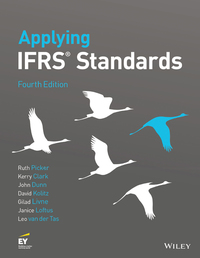Question
The Sterling SE is resident in Germany and wants to invest 60,000 EUR in a depreciable asset with a useful life of 3 years, which
The Sterling SE is resident in Germany and wants to invest 60,000 EUR in a depreciable asset with a useful life of 3 years, which generates cash flows of 30,000 EUR, 25,000 EUR and 50,000 EUR in the next 3 years that do not depend on location. The Sterling SE fully owns a subsidiary in the Ukraine (not EU) and a permanent establishment in Tunisia (not EU). Tax laws are as follows: Country CIT (legal persons) PIT (natural persons) WHT on dividends Depreciation rule Germany 1% on dividends; 30% on all other profits 25% on financial income; 5% on dividends; 45% on all other income none Bonus depreciation (100%) in t=0 Tunisia 15% on all profits 15% on dividends; 30% on all other income 20% Linear over useful life Ukraine 5% on all profits 10% on dividends; 15% on all other income 30% Linear over useful life Profits of permanent establishments of legal persons in each country are taxed with the CIT. The Sterling SEs optimal alternative investment is a financial investment that can either be made in Germany or in Tunisia via the permanent establishment with a pre-tax return of 10%. All country pairs have conducted a double tax treaty in line with the OECD MTC. Tasks: a) Calculate the after-tax cost of capital for the Sterling SE. (3 Points) b) Calculate the after-tax NPV of the investment from the point of view of the Sterling SE if the subsidiary in the Ukraine invests and profits are immediately distributed to the Sterling SE each year. Assume that the Sterling SE finances the investment with a contribution of equity capital to the subsidiary of 60,000 EUR. Free capital of the subsidiary is paid back to the Sterling SE in each year. Assume an after-tax cost of capital of 8%. (11 Points) c) Now assume that the Sterling SE invests in Germany but is able to shift 75% of the profits to the permanent establishment in Tunisia. Calculate the after-tax NPV of the investment. Assume an after-tax cost of capital of 8%. Should this investment be executed? (11 Points) d) Shortly explain how the fundamental freedoms of the EU might simplify profit shifting to Tunisia. (4 Points)
Step by Step Solution
There are 3 Steps involved in it
Step: 1

Get Instant Access to Expert-Tailored Solutions
See step-by-step solutions with expert insights and AI powered tools for academic success
Step: 2

Step: 3

Ace Your Homework with AI
Get the answers you need in no time with our AI-driven, step-by-step assistance
Get Started


